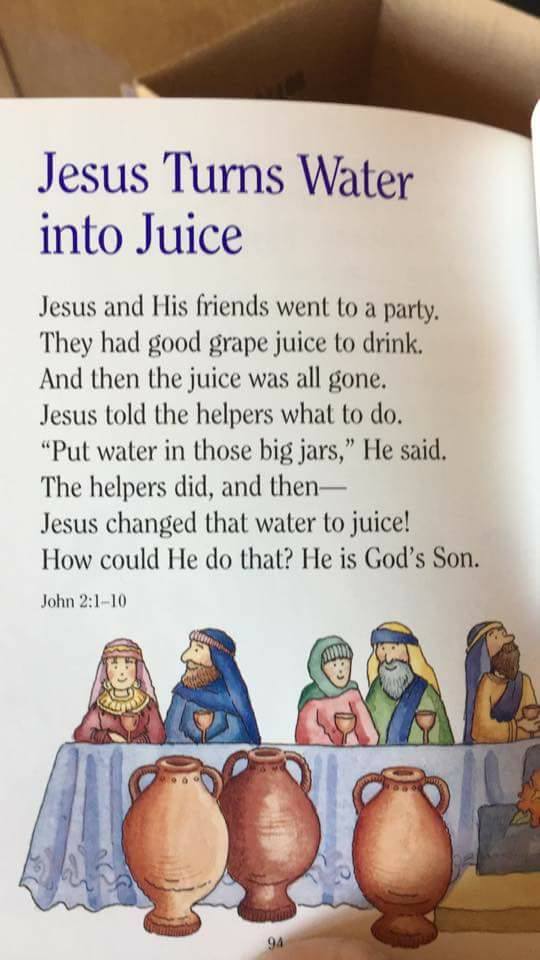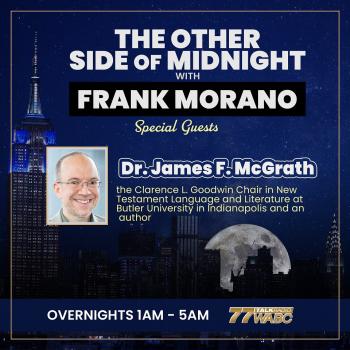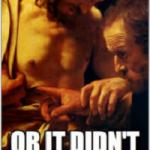
This page from a children’s Bible, which a friend shared on Facebook, seems to me a perfect illustration of the distortion that so-called “biblical literalists” regularly engage in. They decide what the Bible is allowed to mean (in this example, “wine” or “grape juice”) in advance of their encounter with the text. They then interpret it as saying what they think it ought to, what they assumed all along that it must mean. Then, lo and behold, they claim scriptural authority for what are their own views, even having the audacity to claim that what they proclaim are not “mere opinions of human beings” but the very “Word of God.”
What they fail to realize is that they are in fact deifying themselves and their own opinions in this process. And worse still, by passing on these practices to children, they are causing little ones to stumble into the same sins that they commit.
And so the approach to the Bible and to ones own thinking that falls under the label of “biblical literalism” is not merely misguided, but downright sinful, a form of idolatry, an act of human hubris which is all the more heinous because, in the very act of setting themselves up as sources of divine truth, they claim to be achieving a superior level of submission to God than others have.
This is why I bristle whenever I hear someone refer to “biblical literalism,” even when they are referring to the views held by others and not by themselves. There are no genuine biblical literalists. That anyone has been persuaded otherwise is the result of a powerful and deceitful PR campaign by fundamentalists. And what bears the label “biblical literalism” is not only nothing of the sort, but is in direct defiance of the Bible’s teaching about humility vs. arrogance, submitting to and relying on God vs. leaning on one’s own understanding, and countless other themes and teachings that run all throughout the pages of the Bible, which “biblical literalists” in the best of cases ignore, and in the worst, deliberately disobey.
On the topic that this post began with see further my chapter “‘A Glutton and a Drunkard’: What Would Jesus Drink?” in the book Religion and Alcohol: Sobering Thoughts.


















